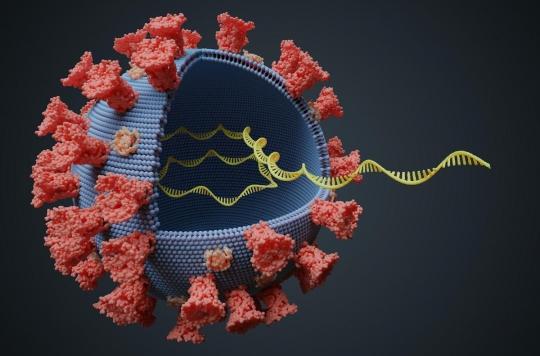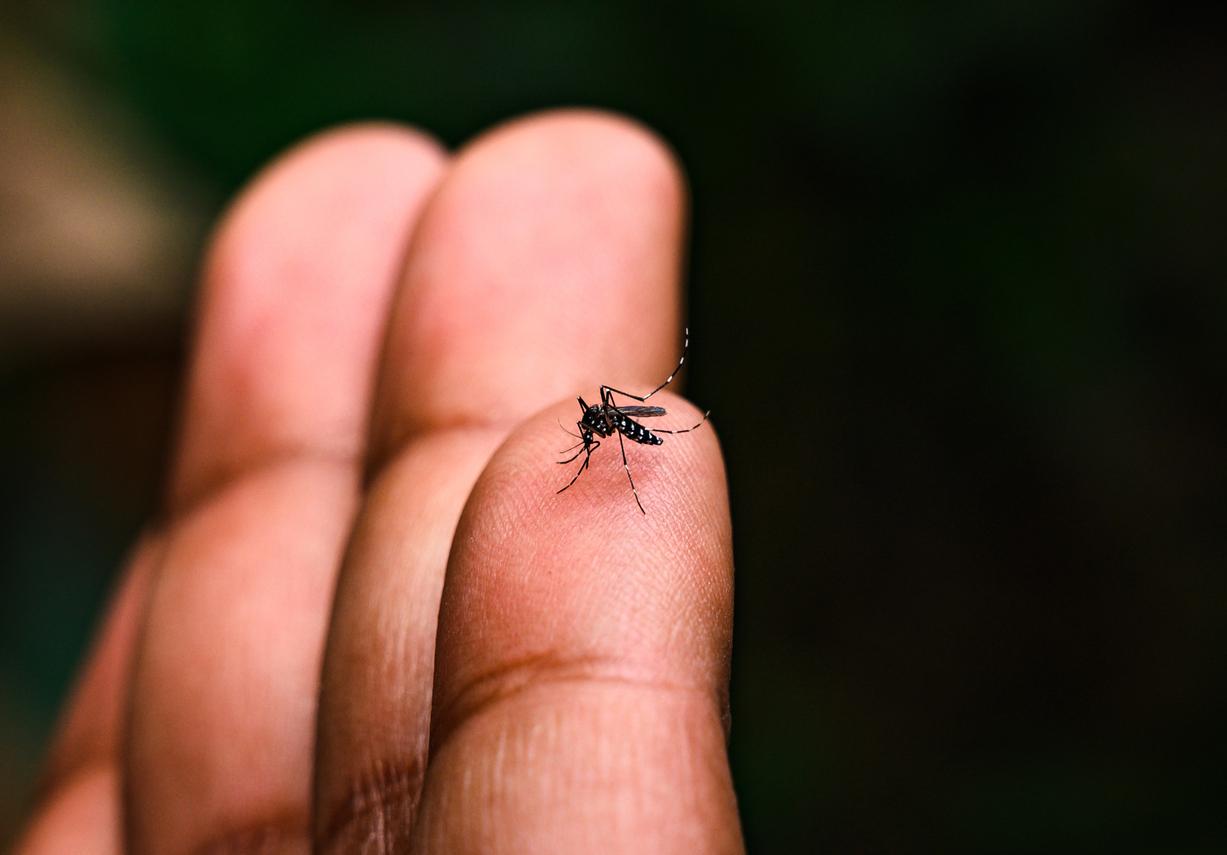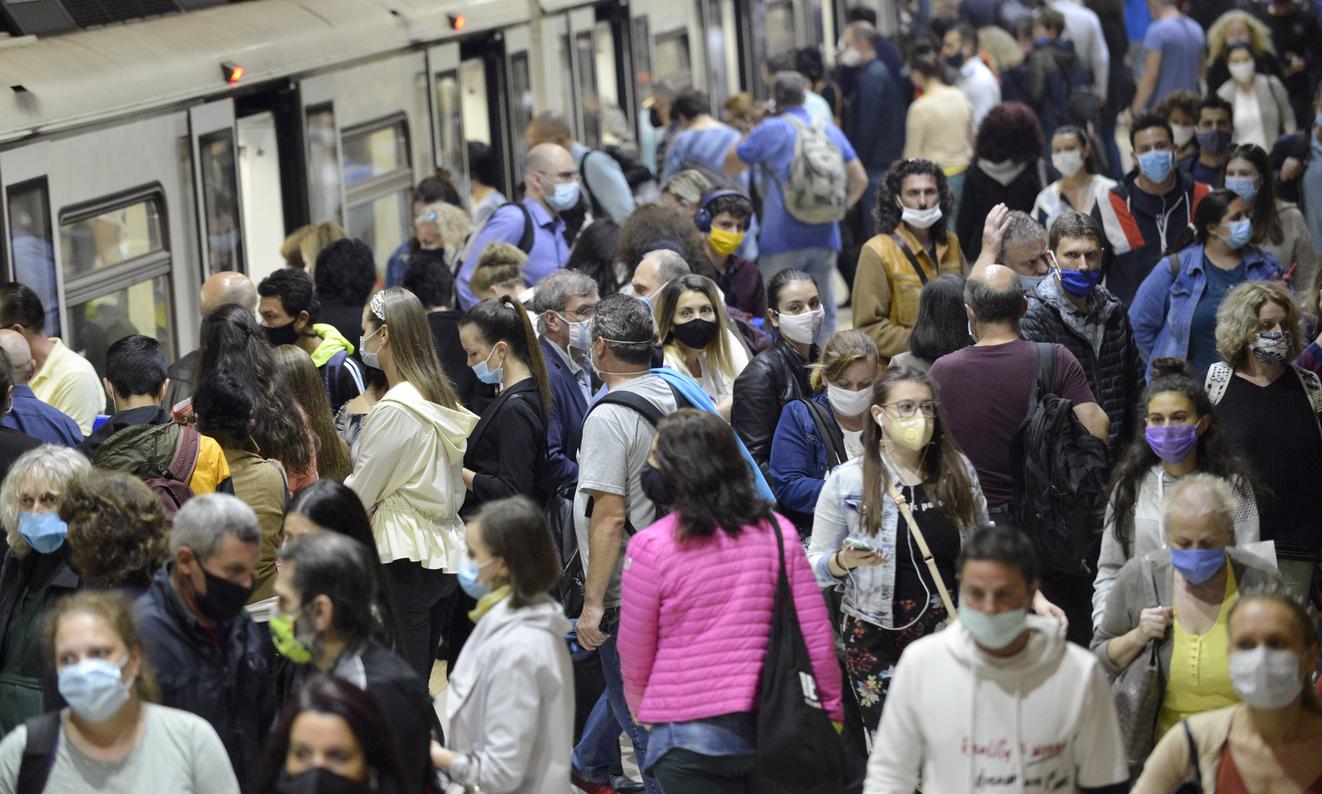While a new study claims that mutations in SARS-CoV-2 do not increase the transmissibility of the virus, another points to a mutation, which occurred very early after the onset of the pandemic, as responsible for its rapid spread.

- Several studies believe that a mutation, 614G, which makes it easier for the virus to penetrate the cells of the nose or throat, which occurred very early, is the cause of the rapid spread of the virus.
- New study, based on viral genomes from more than 46,000 people with Covid-19, claims no mutation increases virus transmissibility
- All the researchers agree that the mutations will not affect the effectiveness of the vaccine
The mutations of the new SARS-CoV-2 coronavirus continue to agitate research and give rise to work that leads to results that seem contradictory. That the virus has mutated is a certainty because, as Dr. Etienne Simon-Lorière, head of the Evolutionary Genomics of RNA Viruses Unit at the Pasteur Institute, recently told Why, “SARS-CoV-2 mutates to survive. When it enters a cell, it replicates as quickly as possible before the immune system begins to kick in. Hundreds and hundreds of copies can be produced, because SARS-CoV-2 has a capacity to absorb small changes in the genome that is quite large.”
A mutation at the origin of the pandemic
Are these mutations responsible for the rapid spread of the virus? Yes, according to several studies. The mutation, known as 614G, was first spotted in eastern China in January and then quickly spread across Europe and around the world. There is no evidence that with this mutation the virus causes more severe symptoms, kills more people or complicates vaccine development. On the other hand, this mutation means that the virus can more easily penetrate the cells of the nose or throat and therefore infect patients more easily and more quickly. “Virus genome change appears to have had a big ripple effectestimates David Engelthaler, geneticist at the Translational Genomics Research Institute in Arizona, interviewed by the New York Times. Ultimately, this mutation could be the cause of the pandemic..”
But these conclusions have just been contradicted by a recent study, published on November 25 in the journal NatureCommunications, where the researchers felt that no mutations currently documented on the virus increase its transmissibility. This research is based on the analysis, carried out by scientists from the University of California, CIRAD, the University of Reunion and Oxford, of the viral genomes of more than 46,000 people with Covid-19 and from 99 countries. “We have found that none of these mutations allow Covid-19 to spread faster but we must remain vigilant and continue to monitor new mutations, particularly as vaccines are rolled out.”, continued Dr. Lucy van Dorp, lead author of the study.
The D614G mutation, neutral for the virus
In total, 12,706 mutations have been identified. For 398 mutations, there is strong evidence that they occurred repeatedly and independently. The researchers focused on 185 mutations that occurred at least three times independently during the pandemic. To test whether mutations increase transmission of the virus, the researchers modeled the evolutionary tree of the virus and analyzed whether a particular mutation became increasingly common in a given branch of the tree, i.e. whether descendants of this virus outperform closely related SARS-CoV-2 viruses without this particular mutation.
The researchers found no evidence that any of the common mutations increase the transmissibility of the virus. Instead, they found that the most common mutations are neutral to the virus. This includes a mutation in the virus’ spike protein called D614G, which others have pointed to as causing the virus to spread rapidly. “The virus appears well adapted for human-to-human transmission and may have already reached its optimum fitness level in the human host by the time it was identified as a new virus.”, conceded Dr. Lucy van Dorp.
Mutations, not a problem for vaccines
The researchers agree on one thing: the mutations will not affect the effectiveness of the vaccine. A study from September has already claimed that the mutations will not affect the vaccine, saying the low viral diversity of the virus opens the door to a unique vaccine. “The news on the vaccine front is greatconfirmed François Balloux who participated in the study published in NatureCommunications. The virus may well acquire vaccine leak mutations in the future, but we are confident that we will be able to report them quickly, allowing vaccines to be updated in time if necessary..”

.














